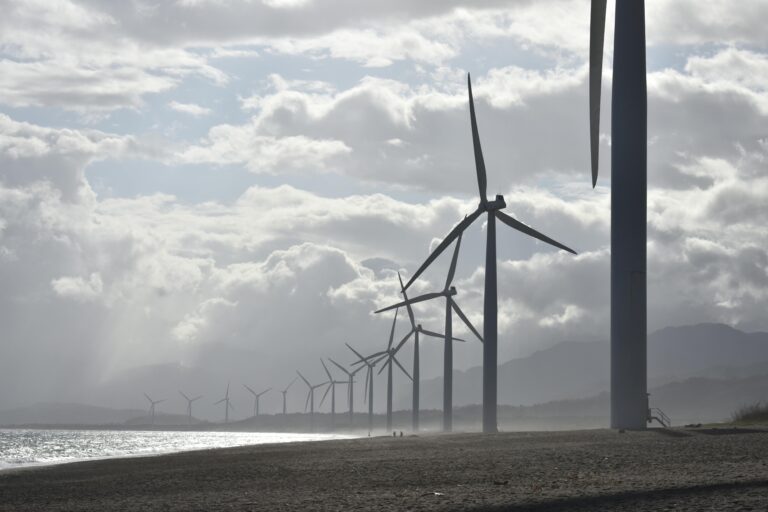As the world grapples with environmental challenges, the role of technology in fostering sustainability has become more crucial than ever. Innovative technologies are emerging as powerful tools to combat climate change, reduce pollution, and preserve natural resources. This article explores various types of technology that are making a positive impact on the environment.
Renewable Energy Technologies
Solar Power
Solar power harnesses energy from the sun, providing a clean and abundant source of electricity. Advances in solar panel efficiency have made solar energy more accessible and affordable. Solar farms and rooftop installations are popping up worldwide, showcasing the viability of solar energy in reducing carbon footprints.
Wind Power
Wind power is another significant renewable energy source. Modern wind turbines are designed to be more efficient and less intrusive on landscapes. Wind farms, both onshore and offshore, generate substantial amounts of clean energy, contributing to the reduction of greenhouse gas emissions.
Hydropower
Hydropower leverages the energy of flowing water to generate electricity. It’s a reliable and sustainable energy source, particularly in regions with abundant water resources. Innovations in micro-hydropower systems are making this technology accessible to smaller communities and remote areas.
Energy Storage Solutions
Battery Technologies
Effective energy storage is essential for maximizing the potential of renewable energy sources. Lithium-ion batteries are leading the charge, with significant improvements in capacity and lifespan. Emerging technologies, such as solid-state batteries, promise even greater efficiency and safety, paving the way for broader adoption of renewable energy.
Pumped-Storage Hydroelectricity
Pumped-storage hydroelectricity systems store energy by moving water between reservoirs at different elevations. During peak electricity demand, the stored water is released to generate power. This technology offers a reliable way to balance energy supply and demand, ensuring a steady flow of clean energy.
Green Transportation
Electric Vehicles (EVs)
Electric vehicles are transforming the transportation sector. EVs produce zero emissions, significantly reducing air pollution compared to traditional gasoline-powered vehicles. Innovations in battery technology and increased charging infrastructure are accelerating the adoption of EVs globally.
Public Transit Innovations
Eco-friendly public transit systems are crucial for reducing urban pollution. Electric and hybrid buses, along with modern trains, offer sustainable alternatives to traditional public transportation. Cities worldwide are investing in green public transit systems to improve air quality and reduce traffic congestion.
Sustainable Agriculture Technologies
Precision Farming
Precision farming utilizes drones, sensors, and IoT devices to optimize agricultural practices. By monitoring crop health and soil conditions in real-time, farmers can make data-driven decisions, reducing water and chemical usage. This technology enhances productivity while minimizing environmental impact.
Vertical Farming
Vertical farming is revolutionizing urban agriculture. Growing crops in vertically stacked layers uses less land and water than traditional farming. Technological advancements in lighting and climate control make vertical farming a sustainable option for producing fresh, local produce in urban areas.
Waste Management and Recycling Technologies
Waste-to-Energy
Waste-to-energy plants convert non-recyclable waste into electricity and heat. This process reduces the volume of waste sent to landfills and lowers greenhouse gas emissions. Cities are adopting waste-to-energy solutions to manage waste sustainably and generate renewable energy.
Advanced Recycling Techniques
Innovative recycling technologies are improving the efficiency of waste management. Methods like chemical recycling break down plastics into their basic components, allowing for more materials to be reused. These advancements help reduce landfill waste and promote a circular economy.
Smart Home Technologies
Energy-Efficient Appliances
Energy-efficient appliances are designed to use less electricity and water, reducing household energy consumption. From refrigerators to washing machines, these appliances help homeowners save money while minimizing their environmental footprint.
Home Automation for Energy Conservation
Smart home automation systems, such as smart thermostats and lighting controls, enable homeowners to optimize energy use. By adjusting settings based on occupancy and time of day, these systems contribute to significant energy savings and increased comfort.
Sustainable Building Materials and Technologies
Green Building Materials


Eco-friendly construction materials, such as recycled steel and sustainable timber, are becoming more popular in the building industry. These materials reduce environmental impact and improve building energy efficiency, promoting sustainable development.
Building Automation Systems
Building automation technologies enhance energy efficiency in commercial and residential buildings. Systems that control lighting, heating, and cooling based on occupancy and usage patterns can significantly reduce energy consumption and operating costs.
Water Conservation Technologies
Smart Irrigation Systems
Smart irrigation systems use sensors and weather data to optimize water usage for landscaping and agriculture. These systems reduce water waste by delivering the right amount of water at the right time, conserving this vital resource.
Water Recycling Systems
Water recycling systems treat and reuse greywater from sinks, showers, and washing machines. By recycling greywater for irrigation and other non-potable uses, these systems help conserve freshwater and reduce the strain on municipal water supplies.
Conclusion
Adopting these innovative technologies is essential for creating a sustainable future. From renewable energy to smart home devices, each technology plays a vital role in protecting our environment. By embracing and investing in these solutions, we can make significant strides toward a greener, more sustainable world.


